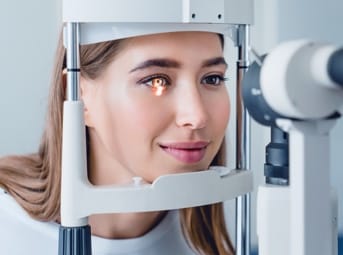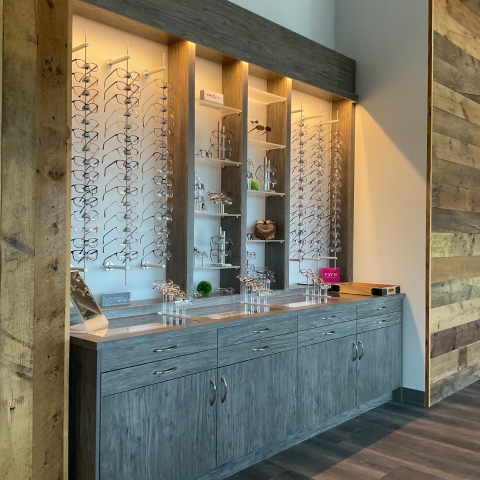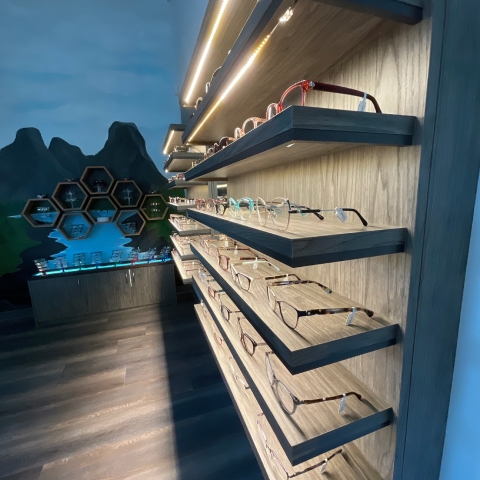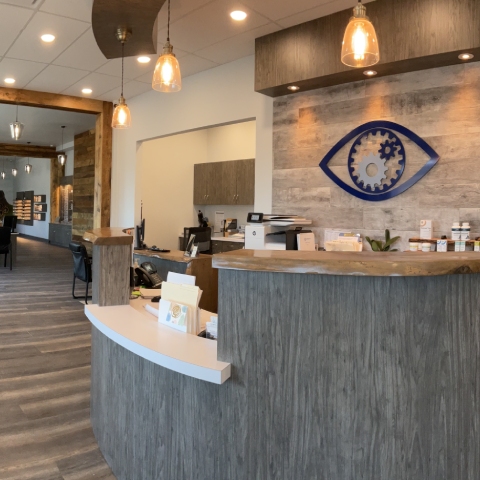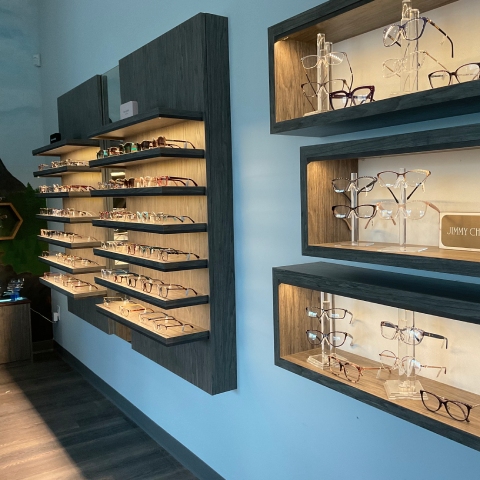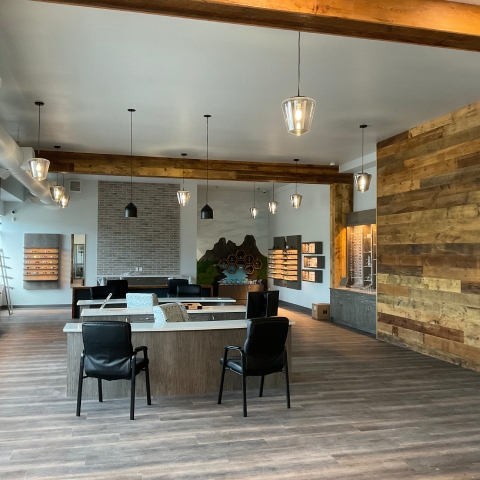Maintaining Your Eye Health
One of the best ways to monitor your eye health is through regularly scheduled comprehensive eye exams. Eye diseases can develop without any obvious symptoms. But testing during an eye exam could uncover the beginning stages of vision-threatening issues.
Some people are more susceptible to eye diseases due to family history or medical conditions. Knowing the signs and symptoms of these conditions can help you monitor your ocular health at home, but it should never replace an eye exam.
If you have any issues with your vision, it is important to speak to your eye doctor.
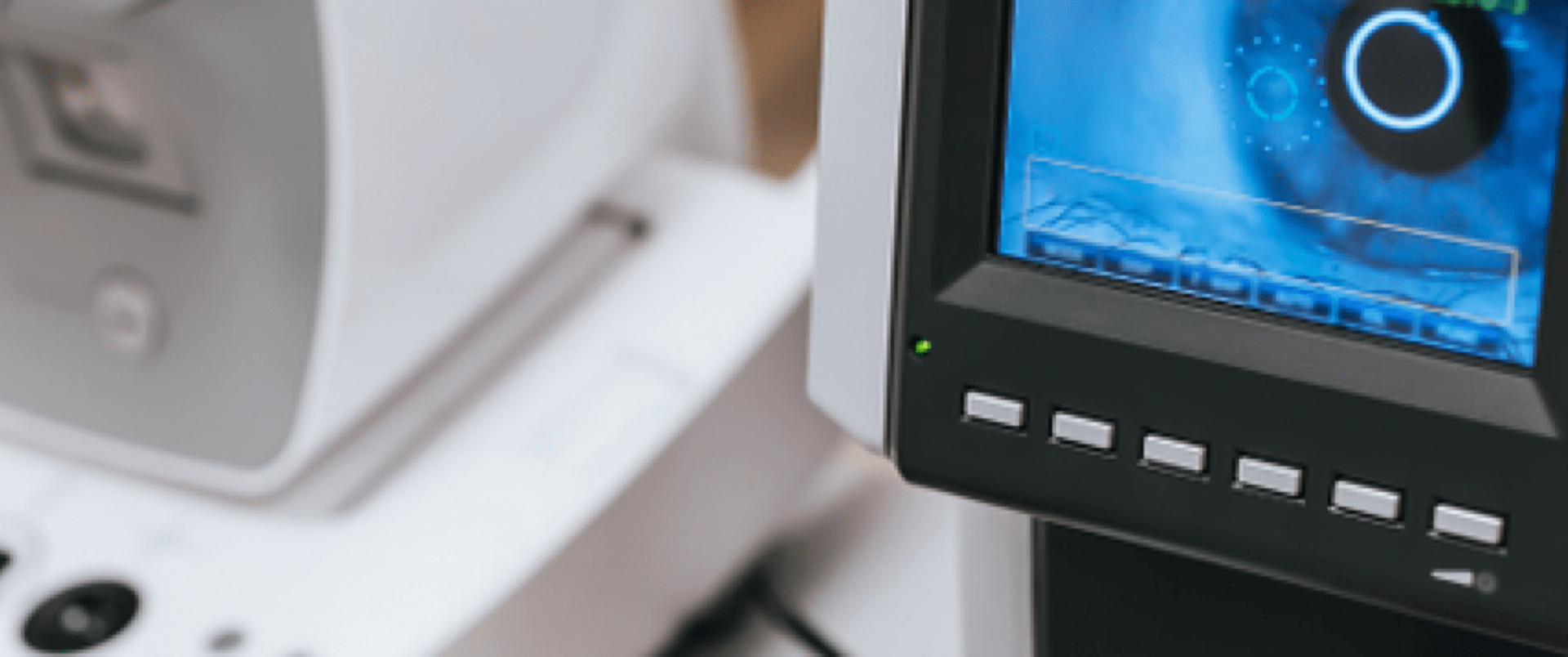
Preserve Your Visual Health
Recognizing the signs and symptoms of eye disease can help you be more aware if your vision begins to change. There are ways you can prevent the early onset of common eye problems, like leading a healthy lifestyle, protecting your eyes from the sun, and taking supplements to promote eye health.
Dry Eyes
Dry eye syndrome can occur as part of the normal aging process or due to other factors like:
- Environmental factors like a lack of humidity
- Hormone changes
- General health issues like arthritis
- Medications like antihistamines, oral contraceptives, and antidepressants
- UV exposure
Some symptoms of dry eyes include:
- Stinging, scratchy, uncomfortable eyes
- Gritty sensation or feeling like there’s something in your eye
- Fluctuating vision when you blink
- Excessive watery tears that won’t stay in your eyes
Cataracts
Typically, people develop cataracts later in life. But other health complications like diabetes can cause them to form sooner. Cataracts gradually cloud the crystalline lens in your eye and can be treated with an updated prescription for a while. However, you may eventually need surgery to restore your vision.
Some symptoms of cataracts include:
- Foggy or blurred vision
- Decreased nighttime vision
- Halos around lights
- Dull or muted colour vision
- Feeling like a film is covering your eye that blinking doesn’t resolve
- Sensitivity to light
Glaucoma
A leading cause of blindness, glaucoma begins affecting your outer vision (peripheral) and works its way in. Often, it goes unnoticed until it has progressed substantially.
You are at a greater risk of developing glaucoma if:
- You have a family history of glaucoma
- You are over 50 years of age
- You have high myopia
- You are diabetic
Macular Degeneration
Often referred to as age-related macular degeneration (AMD or ARMD), this common eye disorder generally affects older adults.
Your macula is responsible for a clear image in the centre of your vision. Macular degeneration causes the centre of your vision to blur and become distorted.
There are 2 types of macular degeneration: dry and wet. The dry form is most common and affects vision slowly. Your eye care professional can prescribe treatments to help preserve your vision. Wet macular degeneration progresses quickly, and although vision loss is permanent, it can be slowed with vitamins and medications.
Symptoms of macular degeneration can include:
- Slightly blurred central vision when performing detail-oriented tasks
- A sense there is dirt in the way of your vision
- Straight lines look wavy or distorted
- Difficulty reading and recognizing faces

See Your Optometrist
Regular visits to your optometrist can uncover early signs of eye disease. Some eye diseases symptoms can be mitigated if they are identified early enough by an eye doctor.
We will help prevent, diagnose, and treat eye diseases. If your vision is changing or you’re experiencing symptoms of eye disease, please come in to talk to us.
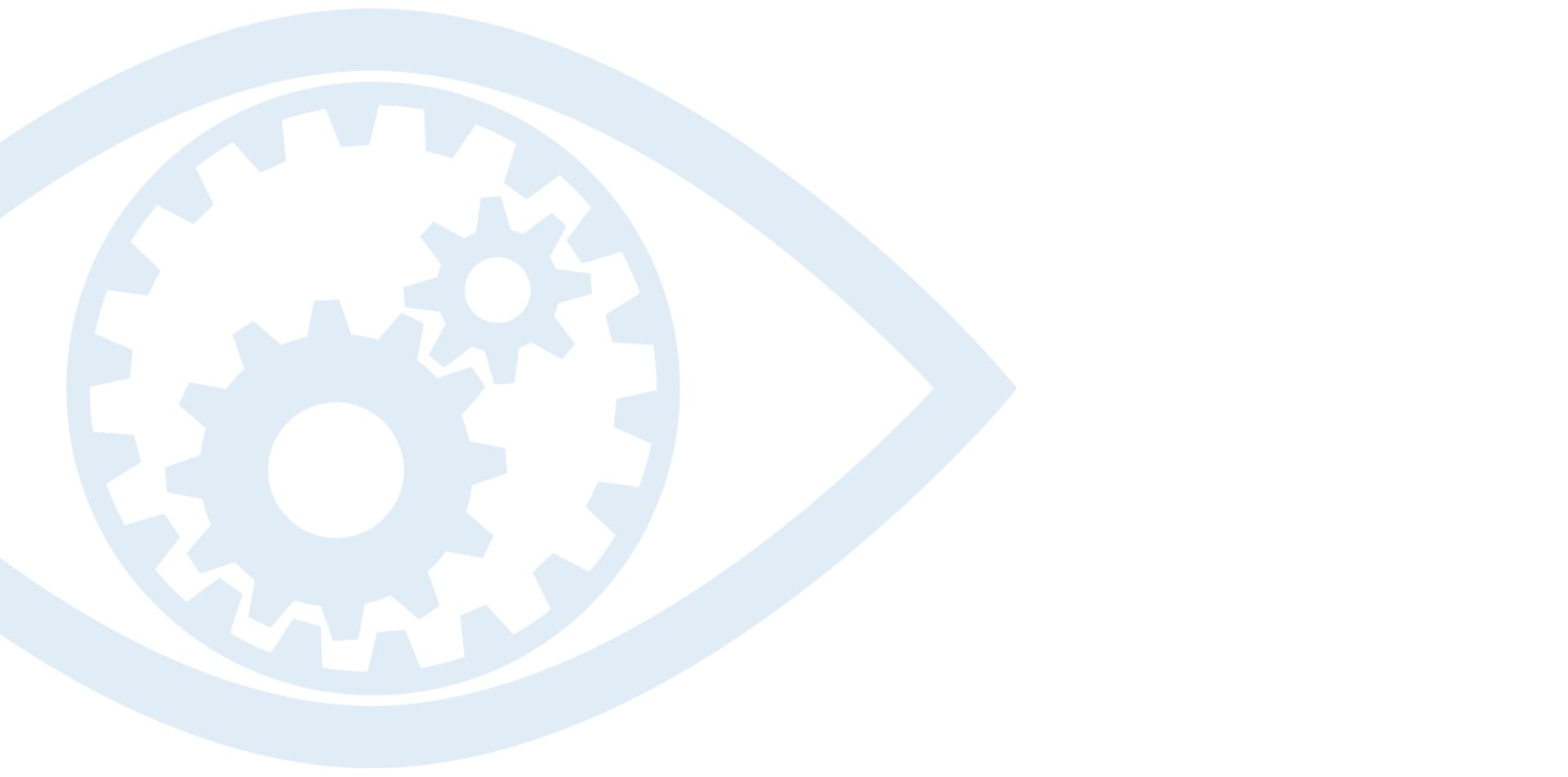
Visit Us
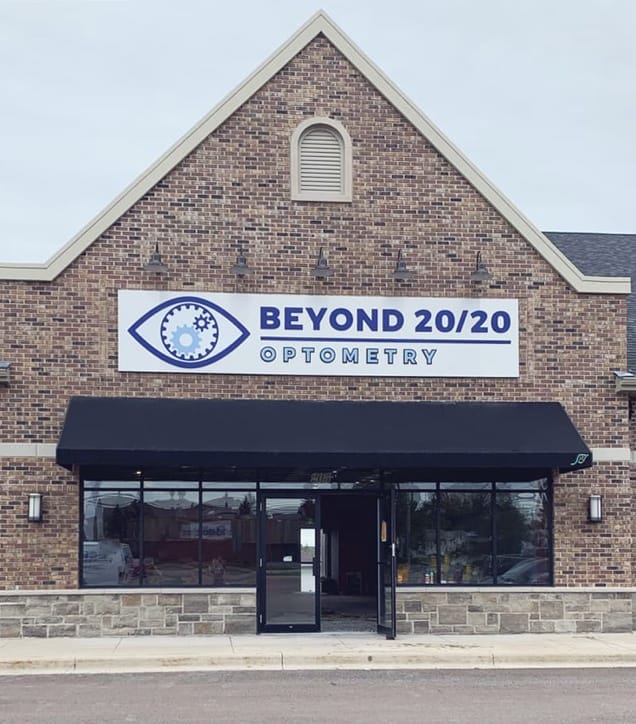
Our Address
- 1688 Mountain Rd. – Unit 205
- Moncton, NB E1G 1A6
Contact Information
- Phone: (506) 858-2020
- Email: [email protected]
Hours of Operation
- Monday: 10:00 AM – 5:00 PM
- Tuesday: 9:00 AM – 5:00 PM
- Wednesday: 11:00 AM – 7:00 PM
- Thursday: 11:00 AM – 7:00 PM
- Friday: 9:00 AM – 5:00 PM
- Saturday: CLOSED
- Sunday: CLOSED


